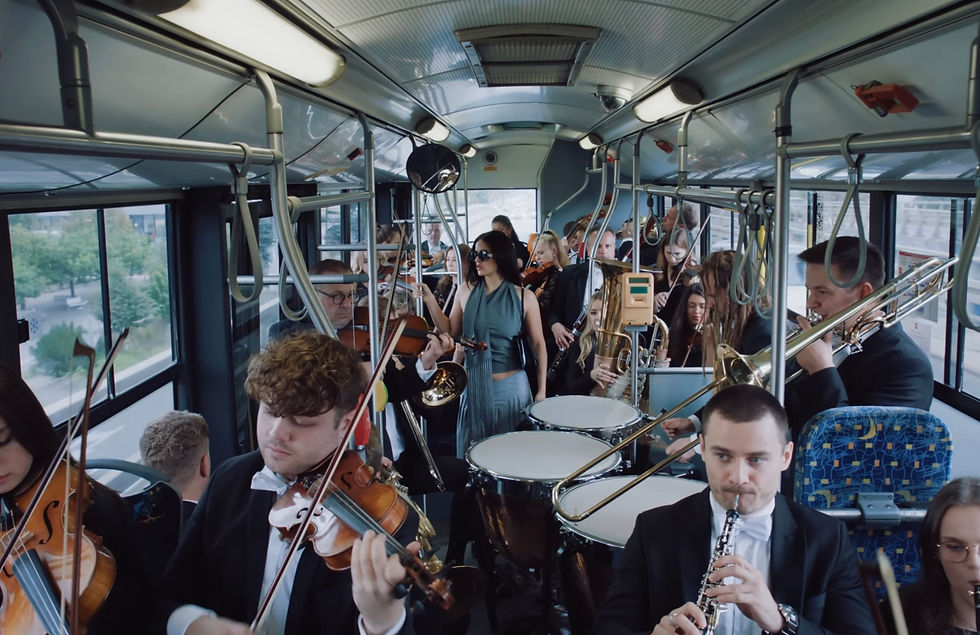“Berghain” Collapses Genres: Rosalía, Björk & Yves Tumor Forge an Orchestral Nightscape
- Strunkiss Music

- Oct 27, 2025
- 2 min read
From German choirs to whispered English incantations, this audacious single becomes an avant-opera of techno memory, heartache and transcendence.

©️ Columbia Records
When Rosalía opens “Berghain” with the chorus chanting in German “Seine Angst ist meine Angst…” you know immediately you’re no longer in the world of lightweight pop. Joined by Björk and Yves Tumor, the Spanish singer abandons reggaetón and Spanish-pop tropes for something far more expansive. The track is built on sweeping orchestral strings, liturgical choir layers, and subtle electronic pulses that feel like a nightclub sanctuary and a cathedrallik space at once.
Rosalía’s voice moves from intimate torch-song lament to operatic flare, weaving Spanish and German with an elegance that surprises the opening offers fragile introspection, then blossoms into gothic grandeur. Björk’s contribution arrives with unmistakable eccentricity, floating like a bird through the arrangement, while Yves Tumor enters like a disruptor, a raw emotional installation challenging control and surrender. The three voices don’t simply blend; they clash, converge and transform into something richer than any one of them alone.

Lyrically and symbolically, “Berghain” is layered. Referencing the legendary Berlin club, the title becomes a metaphor not only for hedonism and dance-floor ritual but for endurance, rebirth, and ritualized self-exploration. Its multilingual verses articulate love, rage, fear and blood as shared elements between people a strange unity born out of transgression: “His fear is my fear, his love is my love…”. The music video reinforces this duality: Rosalía ironing in a room, an orchestra in tow, then surrounded by woodland creatures, upside-down rituals and a collage of sacred and secular imagery.
Musically, the track is daring. The production spans from lush strings reminiscent of Ariadne’s labyrinth to industrial echoes brushing the outer edges of house and techno. It doesn’t feel streamlined; it feels lived-in. The orchestral parts swell like waves, then pull back to flickers of bass and metallic detail. It’s the sound of a pop artist daring to threaten her own genre, reminding us that the most fascinating art often happens when the familiar is torn open.

“Berghain” may not land instantly on the dance-floor circuit we expected when hearing the title, but that seems intentional. Instead of a beat-driven banger, it’s a ritual, a journey, a confession. In that sense, Rosalía signals a new era: not Motomami 2, but something more epic, cinematic and restless. She asks us not just to listen but to enter, to unfold, to reflect. The collaboration with Björk and Yves Tumor isn’t a feature it’s a triad of creative power. Together they make “Berghain” feel like a church service for the lost, a club for the seekers, a moment of chaos for the sacred.



Comments